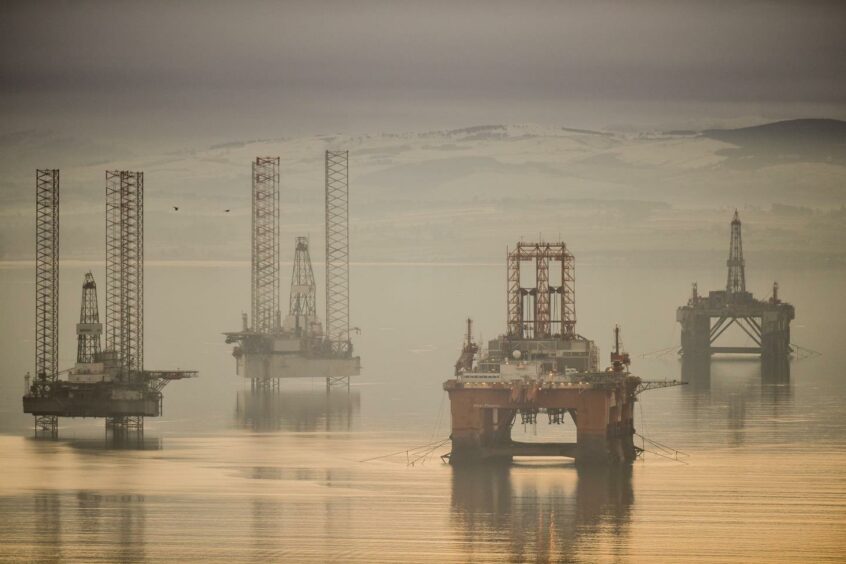
Debate kicks off this week over the government’s plans to hold annual oil and gas licensing rounds, as the legislative bill receives its second reading in Parliament.
In November the UK government announced plans to mandate annual oil and gas licensing rounds, in a move it said would “increase certainty, investor confidence and make the UK more energy independent.”
Announced ahead of the Kings Speech in November, the Offshore Petroleum Licensing (OPL) Bill would amend legislation to invite applications for new North Sea exploration licences on a yearly basis.
While the proposals were welcomed by the sector, opponents have criticised the move as a political play amid an ongoing battle over the future of North Sea oil exploration – and one which has little impact on energy security or household bills.
What does the Offshore Petroleum Licensing Bill do?
The Offshore Petroleum Licensing (OPL) Bill seeks to amend the Petroleum Act 1998, adding a requirement for the North Sea Transition Authority (NSTA) to hold annual oil and gas licensing rounds subject to two new tests.
The first is a “carbon intensity test”, which would be met if the carbon intensity of produced domestic gas is lower than the carbon intensity of liquefied natural gas (LNG) imported into the UK during the three years prior.
The second is a “net importer test”, which requires that domestic crude, gas and NGL production is expected to be below demand for each calendar year in question.
Critics said these tests “appear to override” the ‘climate compatibility checkpoint’ tests enacted in 2022, however a UK Government spokesperson confirmed the new measures sit alongside the checkpoint, which remains in place.
Unlike these new tests, the climate checkpoint is non statutory.
There are currently no fixed terms for North Sea licensing rounds, and the first permits dished out as part of the 33rd round last year were the first such awards in three years.
Under the bill, annual rounds would be held during every 12 month period from October 2024.
Where is it now?
Monday 8 January will see a second reading of the bill in parliament, during which a debate will be held on the content and principles. No amendments can be made to the text at this stage, although MPs may give an idea of changes they will be proposing at later stages.
Following this it will head to committee, before any amendments are discussed at the report stage and a third reading is held.
The bill would then make its way through the House of Lords before it could be granted Royal Assent – though at each stage there is scope for its progress to be waylaid.
Unnecessary requirement
Both the opposition and climate campaigners have criticised the move as a political “gimmick”, designed to mark a divide between the contrasting energy policies of Labour and the government.
Their accusations are lent weight by notes from an NSTA board meeting in September, in which the board expressed “a unanimous view” that mandatory annual licensing “was not necessary for the NSTA to meet its functions under current legislation, including enabling the principal objective of maximising economic recovery of UK petroleum to be met.”
At the time Labour’s shadow energy secretary Ed Miliband said: “Even the oil and gas regulators have said that the Conservatives’ energy legislation is unnecessary, and undermines their independence.”
An NSTA spokesperson told Energy Voice: “The NSTA, as the independent regulator, holds regular licensing rounds. As you would expect, the NSTA Board discusses a wide range of issues and represents a diverse range of views.
“As recognised, government legislation is a matter for the government.”
No impact on bills
Campaign group Uplift said the bill would do “virtually nothing” to lower bills, or bolster energy security and jobs.
It claimed the new criteria would weaken “already deeply insufficient climate measures” set out in the North Sea Transition Deal and the compatibility checkpoint, arguing that the two new tests “are even narrower” and “designed to be impossible to fail.”
“These tests appear to override the climate checkpoint, they make no reference to the industry’s production emissions reduction targets, and they do not consider the far greater emissions produced when oil and gas is combusted,” Uplift said.
The argument for maintaining domestic production on an emissions basis also comes under fire, with Uplift contending that production emissions from UK gas are “twice that of gas imported via Norway”.
Yet it should be noted that the bulk of any balance is likely to come from LNG, as demand for the fuel grows.
Data released by the NSTA last year supports the case for local production on this basis, suggesting US LNG had an average carbon intensity of 78kg of CO2 per barrel of oil equivalent, versus 21kg/boe for UK domestically-produced gas.
Indeed, the government maintains that domestic gas production has around one-quarter of the carbon footprint of imported LNG.
Even still, Uplift suggests new licences will do little to alter this picture. Citing its own analysis of NSTA production projections and demand estimates from the Climate Change Committee, it finds new licences would provide an average of just four days’ worth of gas demand per year.
Capacity concerns
Uplift also says the practical implications of holding annual rounds remain unclear, while questions remain over the regulator’s capacity to run the process.
The 33rd Licensing Round launched in October 2022 saw bids submitted for 115 oil and gas licences, of which only 27 have been issued so far.
The NSTA said at the time it had prioritised quick-to-develop resources, with further awards to be announced in due course.
With a general election now tipped for the second half of 2024, there is plenty time for the OPL bill to gain assent – but whether it will achieve its desired aims and defend ground for the government’s energy policy remains to be seen.
Recommended for you
